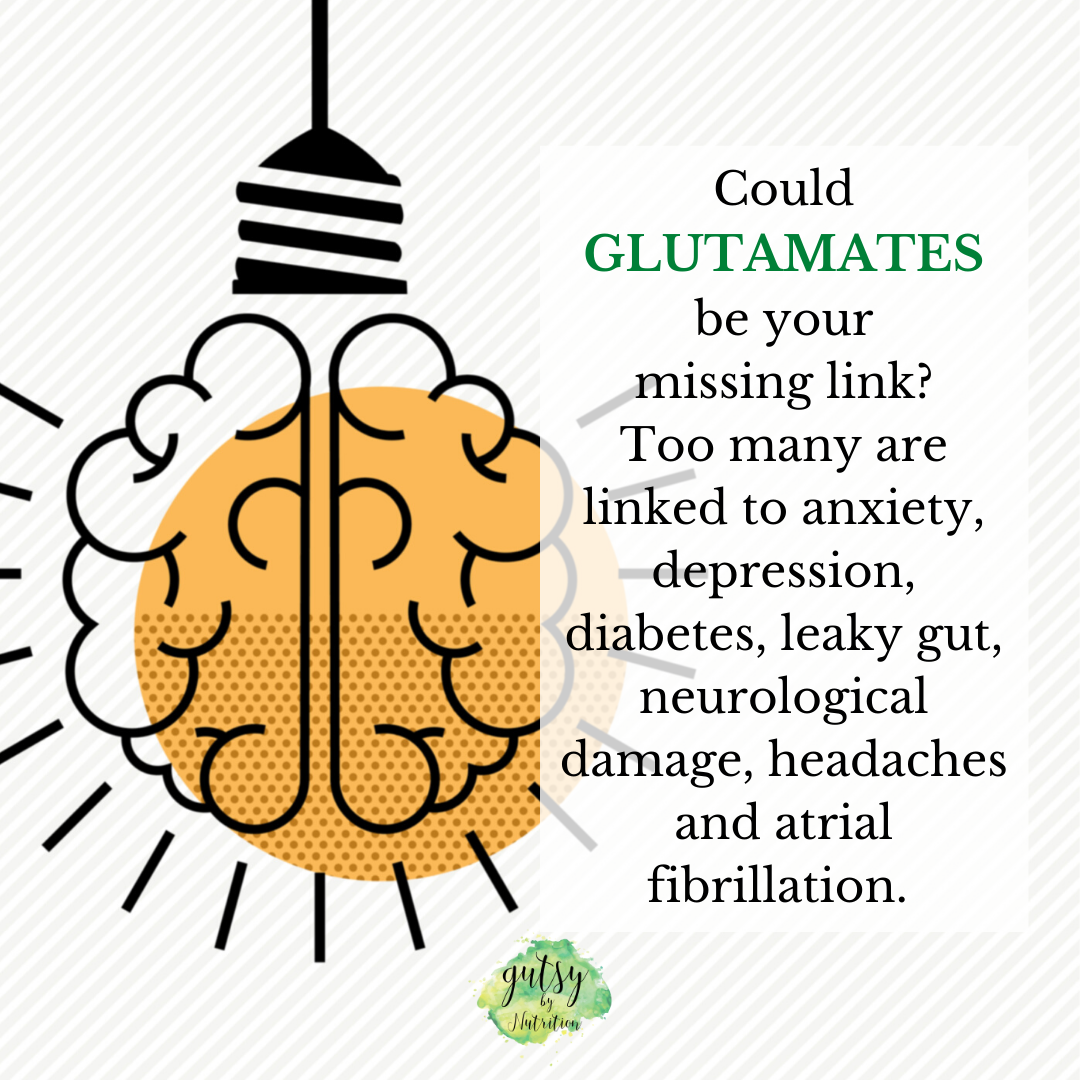Glutamates in brief
Having too much glutamate in your body and brain can be serious.
It can cause sensory overload, and lead to anxiety and sleeplessness.
It's also associated with depression, autism, ADHD, chronic pain, MS, strokes, brain tumours and more. It could be linked to diabetes and compromised gut health too.
What is glutamate?
It's in our food, but in our body glutamate – along with GABA – are the major neurotransmitters (chemical transmitters) in our brains, controlling many bodily processes and 'excitation' levels.
GABA and glutamate act the like the brakes and accelerator pedal in your car, with GABA being inhibitory (repressive) and glutamate excitatory (stimulating).
High levels of glutamate can trigger inflammation and hyper-stimulate your brain. Over time, this can cause neurological damage.
But glutamate influences other parts of your body too.
In the gut, excess free glutamate (it can also be bound) can bind receptors together, causing insulin secretion, and raising glucose and insulin levels too high.
It may also cause intestinal permeability by inflaming your gut, potentially leading to systemic inflammation, low immunity and more brain inflammation.
I had a client who I suspected had high levels and was on a downhill slide. I put them on a low-glutamate diet and gave them 2 targeted supplements. Within 3 days they…
were sleeping again
could breathe freely
felt much less fatigued
their nerve pain lessened by half
their mood improved
their skin stopped breaking out in sores
Yes, they had to eat a restricted diet for two weeks, but they are so grateful to have their life back.
Foods that are high in glutamates include…
meats and seafood excepting lamb
grains
dairy
legumes
nuts and seeds
sauces
anything fermented
some vegetables e.g. tomato, mushrooms, cabbage, broccoli

